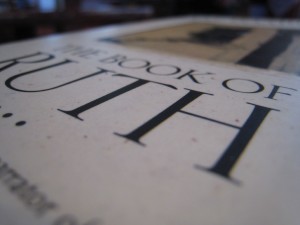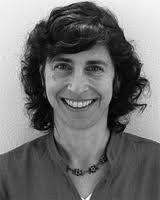 Biblical characters are famously flawed in one way or another. They are human. Like us. Worth loving and learning from in spite of – or perhaps because of – their flaws.
Biblical characters are famously flawed in one way or another. They are human. Like us. Worth loving and learning from in spite of – or perhaps because of – their flaws.
Jacob is also known as Israel, a name which acknowledges his ability to prevail in struggles with God. He also is the master of deceit, creating a painful family dynamic for future generations. His story teaches us the destructive power of deceit in a family. Even Moses, our greatest teacher and prophet, has challenges with his temper that the Torah doesn’t hide. These heroes of ours are very human. They live. They die. They do their best. Like us.
Ruth is different. We read her story on Shavuot. As the great Torah scholar Avivah Zornberg points out, Ruth’s behavior is exemplary. What is so interesting about a perfect character? Where is the tension in the story?
The “problem” with Ruth is that she is a Moabite. We learn in the book of Deuteronomy that we must never marry a Moabite. “None of their descendants…shall ever be admitted into the congregation of the Lord because they did not meet you with food and water on your journey after you left Egypt.”
In addition, the Moabite nation exists as a result of an incestuous relationship between Lot and his daughter. A morally flawed family beginning can understandably breed generations of stressed and struggling descendants.
Throughout the Book of Ruth, the title character is called “Ruth the Moabite,” lest we forget she is “forbidden” and potentially “dangerous.” Given her ethnic identity, we expect her to be someone we can’t trust. Yet, unlike her ancestors, who deny food to the Israelites in the desert, Ruth provides food for her Israelite mother-in-law Naomi. Unlike her ancestors, Ruth’s marital relationship is admirable.
Ruth, the Moabite, eventually becomes the great-grandmother of King David and, according to one midrash/story, is one of his close advisors. In Jewish tradition, the Messiah will be a descendant of David, and, therefore, of Ruth the Moabite.
The Book of Ruth teaches us we must judge each individual on his or her own merits. It also teaches us that no matter what our family background, we have choices in how we live our lives.
Why do we read the Book of Ruth on Shavuot, the holiday when we remember receiving the Torah? Maybe one of the most profound truths in the Torah is that we must always be open to the possibility of the good in every human being, including in ourselves. Do we dare open our hearts to this wondrous possibility?
 By Beth Huppin
By Beth Huppin
Beth is the Director of JFS Project Kavod/Dignity. She has enjoyed teaching Judaics to children and adults of all ages in both formal and informal settings for over 30 years. She is the recipient of a 2010 National Covenant Award for Excellence in Jewish Education.



